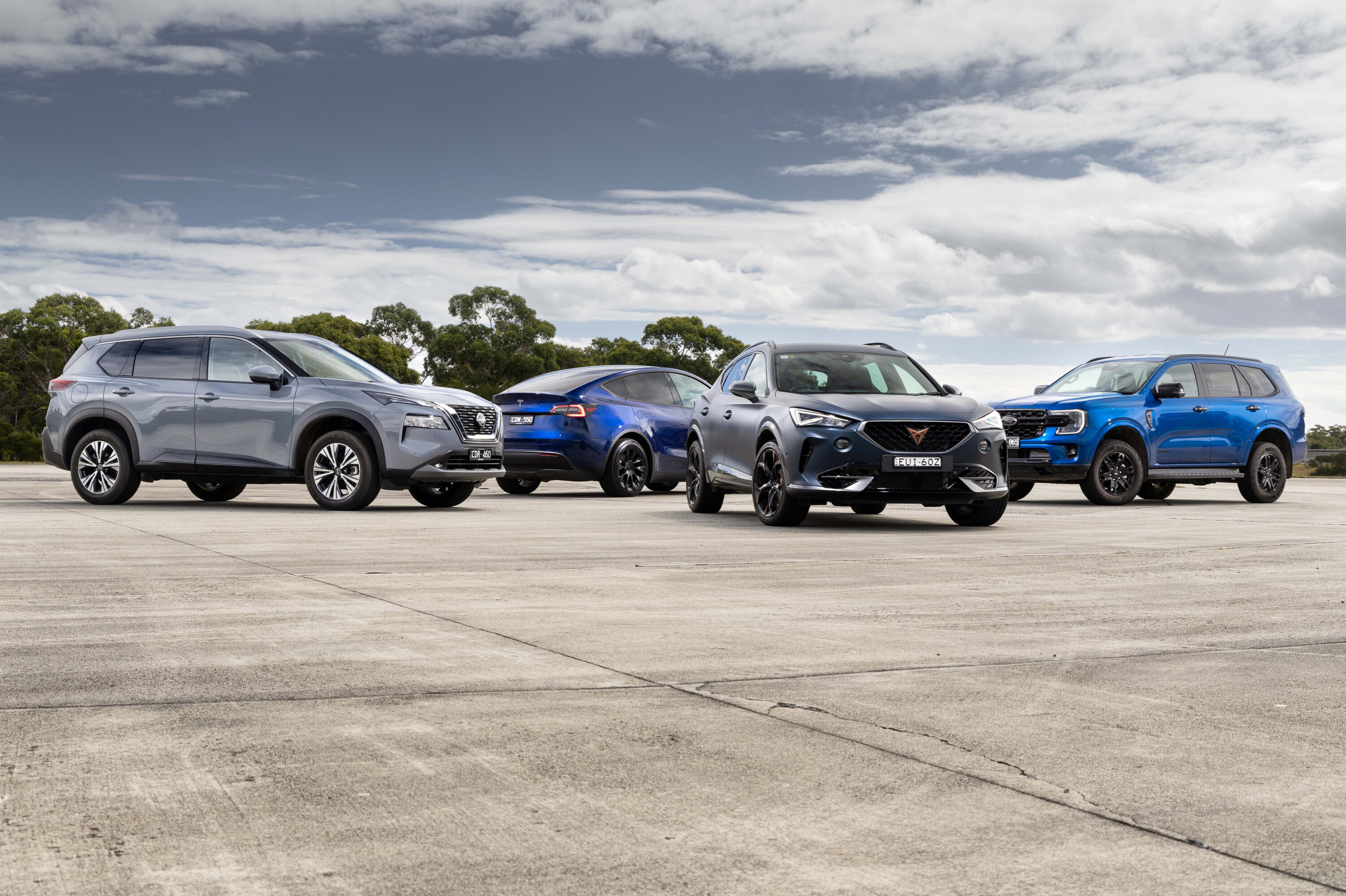
The Federal Government has announced plans to introduce a New Vehicle Efficiency Standard (NVES) in Australia from January 1, 2025.
Also known as fuel efficiency standards, the proposed rules aim to improve the level of efficient vehicles sold in Australia to bring the nation in line with the United States and Europe.
The NVES would apply to new passenger and light commercial vehicles, requiring vehicle manufacturers to balance emissions across an entire range.
For example, Toyota Australia’s range of lower-emission hybrid and electric cars would accumulate carbon credits that aim to offset heavier passenger vehicles such as the LandCruiser Prado and 300 Series.
The Government’s preferred ‘Option B’ emission-limit scenario intends to catch up to the United States by 2028, with an average annual CO2 reduction of 12.2 per cent for passenger cars and 12.4 per cent for light-commercial vehicles between 2025 and 2029.
The ‘Option A’ scenario is less ambitious – and includes ‘super-credits’ for the sale of low-emission electric and hybrid vehicles – while ‘Option C’ is “fast and aggressive” with stricter emissions reduction.
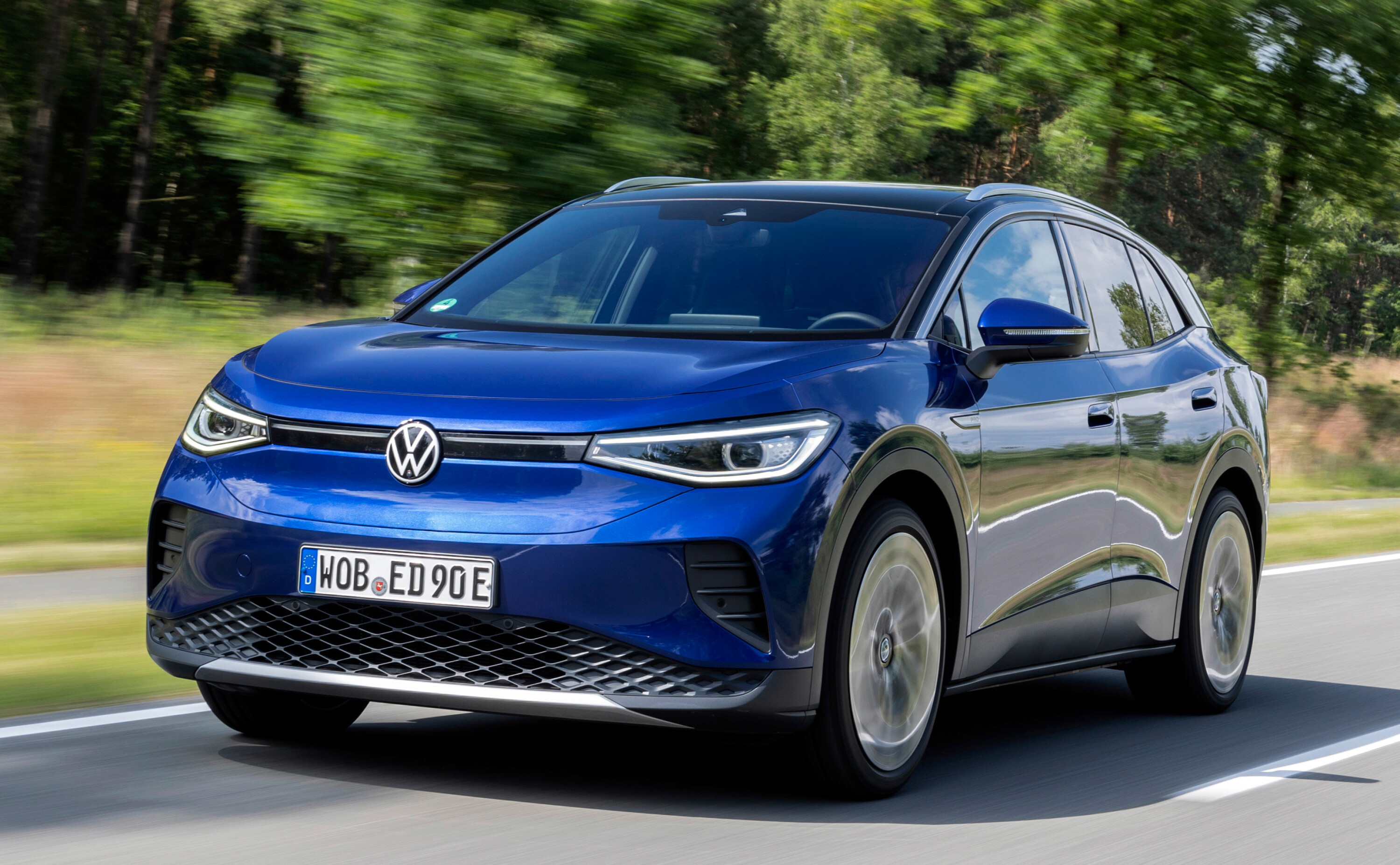
We asked Australia’s major auto brands for their perspective on the proposed fuel-efficiency standards
Volkswagen – which has long been calling for a fuel-efficiency standard – said it is “not one of the dinosaur brands”, while Hyundai and Kia are also mainstream brands that publicly support the implementation of a standard.
However, some other brands are a little more cautious in their positioning about the New Vehicle Efficiency Standard.
These were some of the responses, listed in full below, along with links to recent stories that further explore each brand’s view on EVs.
Toyota & Lexus
Australia’s top auto brand says it supports a flexible, market-specific standard to encourage low-emission vehicle adoption, aligning with its commitment to sustainability – pending further government action.
Toyota is about to launch the bZ4X in Australia as its first EV. It also offers a broad range of hybrid models and, within its Lexus line-up, the RZ and UX300e EVs and the NX450h+ plug-in hybrid.
Sean Hanley, Toyota Australia vice president sales, marketing & franchise operations:
“Toyota Australia supports the introduction of a mandatory fuel-efficiency standard that is ambitious, doesn’t leave Australians behind, is calibrated to the Australian market and allows carmakers to determine the appropriate mix of technologies to achieve it.
“This will have a direct effect on the vehicles that consumers choose to purchase and drive, encouraging access to vehicles with lower and zero CO2 tailpipe emissions technologies. Australian consumers have shown they will purchase vehicles that meet their work and lifestyle needs while being practical, capable and affordable – requirements that continue to apply when seeking to reduce their carbon footprint.
“Toyota’s long-term strategy, therefore, involves a multi-pathway approach: delivering a range of technologies that support decarbonisation while leaving no-one behind. We welcome the opportunity to review the Federal Government’s announcement and will carefully consider our response.”
Mazda
Mazda says it supports a practical fuel efficiency standard to lower emissions, focusing on consumer affordability and transitioning to a fully electrified lineup by 2030, with a quarter being pure-electric models.
Mazda currently has no EVs on offer in Australia, although several of its models are available with mild-hybrid systems. It recently retired its MX-30 EV and hybrid range.
Mazda Australia spokesperson:
“Mazda Australia shares a common vision to reduce carbon emissions from all vehicles sold within Australia, while advocating for a realistic transition via a suitable Fuel Efficiency Standard, that encourages consumers to consider low or zero carbon emitting technologies. This is demonstrated by our commitment both globally and domestically to reduce carbon emissions and their effect on the environment, as evidenced by the consultation and engagement we have undertaken over several years with both state and federal governments as part of the FCAI.
“On release of the Government’s consultation paper, we support the industry’s position and welcome the proposal – as the Australian automotive industry has been seeking a fuel efficiency standard for many years. Mazda Australia encourages the Federal Government to ensure the affordability and mobility needs of consumers are considered throughout the consultation period for a proposed New Vehicle Efficiency Standard.
“Mazda Corporation designs its vehicles to have smallest environmental impact at all stages of the vehicle’s life, including development, operation, and disposal. Mazda Corporation’s strategy is to welcome a range of new electrified models between now and 2035 – including hybrid electric vehicles, PHEVs and BEVs.
“Mazda Australia has been transparent and proactive with public and media to reaffirm our global commitment to the environment, by outlining our future electrification strategy and product strategy, where by 2030, one hundred percent of Mazda products will be electrified, and pure-electric vehicles will account for at least 25 percent of the line-up.”
Ford
Ford Australia says it backs “diverse powertrain technologies” for future needs, advocating for inclusive policies as it gears up for the Ranger Plug-In Hybrid in 2025 and further electrified models, underlining a commitment to low-emission solutions.
Ford sells the Mustang Mach-E and E-Transit in Australia, with the E-Transit Custom and Puma EV also confirmed for our market.
Ben Nightingale, Ford Australia product communications manager:
“We welcome policies designed to educate and promote zero and low emission technologies to Australian consumers, and we see a mix of powertrain technologies playing a role in meeting the future needs of customers – which is why we offer a range of options across our line-up.
“We are reviewing the detail of the government announcement and will work with the Federal Chamber of Automotive Industries (FCAI) and other industry stakeholders to provide our input. We welcome diverse views and healthy debate on this important topic.
“More than two-thirds of our Ranger customers use their vehicles for work – anyone from a suburban electrician who’s a sole trader through to a household name company with thousands of vehicles. While the size of the business and the work it’s being used for can be different one customer to the next, what they all need is capability and versatility. We also know that customers will continue to need vehicles that meet their diverse requirements, whether for work or lifestyle. This is why it’s important that the policy accommodates a mix of powertrain technologies and considers the needs of all customers and use cases, whether they’re based in a big city or the outback.
“We look forward to local deliveries of the Ranger Plug-In Hybrid (PHEV) beginning in 2025. Combining a turbocharged petrol engine and an electric motor, Ranger PHEV represents the best of both worlds, combining zero-emission driving capability whilst retaining all the core Ranger towing, off-road and payload capabilities that our customers tell us they need for both work and play, including easy long-distance travel.
“The work to bring other lower-emitting and electrified vehicles to our shores is already underway at Ford Australia, including the E-Transit and E-Transit Custom, Mustang Mach-E and Puma Gen-E, in addition to Ranger PHEV.”
Hyundai & Genesis
Hyundai says it embraces the vehicle emissions challenge posed by the NVES and believes collaboration between industry and government will benefit consumers.
Hyundai currently offers the Ioniq 5, Ioniq 6 and Kona Electric in Australia, while its Genesis luxury arm has the GV60, GV70 Electrified, and G80 Electrified.
John Kett, Hyundai Australia chief operating officer:
“We see this as an intriguing challenge, and we look forward to responding to the Government’s call for feedback. We think we will soon have a world-class Efficiency Standard in Australia and we’re excited by that. With the Standard in place, Hyundai dealers will still have great vehicles to sell, customers will have great vehicles to drive, and we will be doing our bit to reduce emissions in line with Australia’s commitment to decarbonise.
“We only have five years to catch up to other advanced markets which have had efficiency standards in place for decades, and that’s a challenge. We see merit in the Government’s preferred Option B, and with some minor aspects of Option A introduced to it, we can hit the proposed target and bring accessible, affordable and efficient vehicles to the market.
“The Government has been confronted with many competing voices and opinions throughout this process, and treading a workable path through all the noise will not be easy. A world-class Standard demands world-class thinking around the commercial pressures and infrastructure challenges we jointly face.
“We applaud the ambition of the policy, and certainly with the input of all the major stakeholders who have a role to play in its development, we’re confident that the Government will get the NVES right for all Australian new car buyers.”
Mitsubishi
Mitsubishi says it welcomes Australia’s new vehicle efficiency standards. It is assessing impacts on consumer choices and model availability to ensure vehicles remain accessible and affordable.
Mitsubishi currently offers only the Outlander PHEV and Eclipse Cross PHEV as electrified models in Australia.
Mitsubishi Motors Australia spokesperson:
“We welcome the Federal Government taking the initiative and leadership to develop a model for the implementation of New Vehicle Efficiency Standards in Australia. When designed effectively, and set at the appropriate targets levels, policy levers like vehicle efficiency standards can be beneficial in achieving their objectives to reduce vehicle emissions.
“We are taking our time to properly assess the potential implications for Australian consumers and how it might impact the brand and model availabilities across the sector, both in terms of current models on sale and potential new models.
“Above all else, Mitsubishi Motors wants to ensure that Australians are still able to access the vehicles they want, and need, at reasonable prices.”
Kia
Kia says it supports a formal fuel-efficiency standard in Australia and is confident it can provide a diverse line-up, with strategies already developed to meet emissions requirements in other regions.
Kia currently offers the Niro, EV6, EV9 and Sorento PHEV, with confirmed plans for more EVs soon, such as the EV5, EV3 and EV4.
Kia Australia spokesperson:
“Kia Australia supports a formalised emissions standard and the details of the Federal Government’s recently announced proposal are currently under study internally.
Kia Corporation is a global company with advanced R&D and has previously implemented long term strategies to meet emission requirements in the Korean domestic, North American and European markets.
Kia Australia is confident it will provide a diverse product range, consisting of various fuel efficient technologies, for Australian new car buyers to choose from.”
MG
Chinese-owned British brand MG has confirmed its support for the government’s preferred NVES option.
MG currently offers the ZS EV, MG 4 EV and MG HS PHEV. It will launch the Cyberster EV this year.
MG’s statement:
Sydney, Australia, 15 March 2024 – MG Motor Australia strongly supports the Federal Government’s Impact Analysis for the New Vehicle Efficiency Standard (NVES) and has opted for option B.
MG Motor Australia is fully committed to working with the Government and wider industry to ensure Australian road users can access a wide range of affordable low and zero emission vehicles.
“With majority of the international car market already covered by fuel efficiency standards, we are fully supportive of Australia’s move to help provide consumers with cleaner and more affordable cars to own and run.” said MG Motor Australia Chief Operating Officer, Peter Ciao.
“The standard is a win for customers with rising costs of living and a win for our extensive dealer network who can do their bit to reduce emissions in their local communities in line with Australia’s commitment to decarbonise,” said Mr Ciao.
Mr Ciao said the company approach is intended to catch up with other developed countries’ NVES, resulting in far lower emissions levels when compared with Option A.
“Since we first launched our first EV back in 2020, we have been providing and continue to provide high-quality and affordable electric cars across Australia to assist in an equitable transition to low emissions transport. The MG4 was the first new EV that was sub $40,000 (MSRP) to be offered to the Australian market with a 5 star ANCAP rating.”
“MG is committed to providing fuel efficient motoring to all Australians’ with our clean energy vehicles. We are introducing and evolving our range to offer at least one EV and or Hybrid variant within our range beginning with the all new MG3 hybrid arriving soon. We know that change is never easy and it took a lot of initiative from the Government to make such a move but we also know that having a strong fuel efficiency standard will not only help reduce household costs but also provide healthier neighbourhoods.”
Isuzu Ute
Isuzu Ute Australia currently offers two, strong-selling diesel vehicles: The D-Max ute and MU-X SUV.
It currently has no electrified vehicles in its global portfolio, but an electric D-Max – confirmed for Australia – has been revealed in concept form, along with a mild-hybrid ‘proof of concept’.
Isuzu’s statement:
Isuzu UTE Australia (IUA) urges the Federal Government to consult further with Australia’s automotive industry to identify a New Vehicle Efficiency Standard (NVES) that protects the interests and needs of all Australians living in metro, regional, and rural areas—today and into the future.
The implementation of the NVES proposed by the Government presents timing, financial and engineering challenges for many vehicle brands, particularly those brands that provide Australians with utes and large-SUVs as part of their range, and ultimately risks negatively impacting Australian consumers.
Globally, Isuzu’s transition to low- and zero-emission vehicles is underway, with the brand committed to introduce an electric ute. However, the reality is that due to the infancy of zero-emission technology in light commercial vehicles, it will take more time to develop zero-emission utes and large-SUVs that are both affordable and fit for the specific needs of Australians, including the ability to travel extensive distances, carry a load and tow.
The current NVES proposal doesn’t take into consideration automotive technology development cycles, whereas the comparative US Standards set their targets based on a forecast in alignment with emission technology developments. In this respect, we call on the Government to provide vehicle manufacturers with more time to lower the emissions of their model range through realistic product life cycles to avoid negatively impacting Australian consumers.
In further contrast to the US Standards, the current NVES Option B proposal classifies large-SUVs (including 4×4) and passenger cars in the same way, despite often serving very different purposes and fulfilling different needs. Vehicles, like a large 4×4 SUV, are built on commercial principles to be fit for purpose, be it carrying loads, towing a trailer, or getting off-road. The Government should consider the US approach here and distinguish between passenger vehicles and large-SUVs (especially 4×4).
The penalties currently proposed by the Government for not meeting emissions targets are also excessive, and many vehicle brands may be forced to increase vehicle pricing to cover penalties incurred. Vehicle brands that cannot increase vehicle pricing to cover the penalties may be left with no option but to exit the Australian market, risking a weakening of competition again to the detriment of Australian consumers.
IUA has met directly with the Government, including the Minister for Infrastructure, Transport, Regional Development and Local Government, to provide this feedback on the proposed NVES. IUA now seeks further collaboration with the Government to achieve a solution that does not negatively impact hard-working Australians, while still seeing new vehicle emissions in Australia decline.
GWM
GWM did not respond in time for publishing.
GWM currently offers the Ora EV hatch. The Ora Sport sedan is under consideration for Australia.
Inchcape (Subaru, Peugeot, Citroen)
Inchcape currently offers the Subaru Solterra, Peugeot E-2008 and Peugeot E-Partner electric vehicles, along with several hybrid vehicles.
Inchcape Australia spokesperson:
“Inchcape Australia [which distributes Subaru, Peugeot and Citroen] welcomes the Government’s consultation paper and looks forward to reviewing the proposed details further.”
Volkswagen Group (VW, Audi, Skoda, Cupra)
Volkswagen has long been calling for a fuel-efficiency standard, with a former executive claiming a lack of firm emissions targets meant Australians were living in “an automotive third world” with the country “becoming a dumping ground for older and less efficient vehicles”.
It believes the Government’s preferred Option B, but with super-credits from Option A for electric and plug-in hybrid vehicles likely to offset its higher-polluting vehicles such as the VW Amarok ute, would provide the “most benefit to the Australian consumer”.
“There’s no doubt that there’s a bit of a dividing line and everyone knows what side we’re on – we’re not one of the dinosaur brands,” said Volkswagen Australia corporate communications boss Paul Pottinger.
In 2025, the Volkswagen Group will offer electric vehicles from all of its brands in Australia, including the soon-to-be-introduced VW ID.4 and Skoda Enyaq. It currently offers the Cupra Born, Audi Q8 E-Tron and Audi E-Tron GT, along with several PHEVs.
Karsten Seifert, Volkswagen Group Australia managing director:
“Globally Volkswagen Group is committed to complying with the Paris Climate agreements with the goal of becoming a carbon-neutral company by 2050.
“Volkswagen is driving toward majority all-electric vehicle sales in Europe by 2030. In the US and China, the company has set itself ambitious BEV targets in the same period.
“Volkswagen Group Australia has long been among the voices calling for the introduction of binding auto industry standards that benefit Australia.
“At this time, VGA would suggest the possibility of an NVES modelled on Option B with elements of Option A super credits for full Battery Electric Vehicles and Plug-in Hybrid Electric Vehicles. This outcome should be of the most benefit to the Australian consumer.
“This year our brands [Volkswagen, Audi, Skoda and Cupra] will introduce up to 10 BEV variants, including the first in this market for Volkswagen and Skoda. Meanwhile, conventional utes, SUVs, cars and vans will remain pillars of our business for years to come. VGA is offering such a broad range of personal mobility choices to have the right option for each customer.”
Nissan
Nissan has not issued a statement for its position on NVES, but it did offer some insight at the recent Qashqai E-Power media launch. See the bullets below.
Nissan Australia sells the Leaf EV and plans to introduce the Ariya EV soon. It also offers hybrid versions of the X-Trail and Qashqai.
Nissan’s position on NVES
- Nissan is committed to electric vehicles and carbon neutrality
- We support a national strategy that provides clear direction for the industry
- Well-designed standards help consumers access a wider range of more accessible, affordable and efficient vehicles
- We are committed to co-designing an NVES with the Government that works for all Australians
- Nissan is committed to electric vehicles and carbon neutrality
- We support a national strategy that provides clear direction for the industry
- Well-designed standards help consumers access a wider range of more accessible, affordable and efficient vehicles
- We are committed to co-designing an NVES with the Government that works for all Australians
Ateco did not respond in time for publishing.
Ateco Group currently offers the Renault Megane E-Tech and Maserati Grecale Folgore EVs, along with several electric commercial vehicles from LDV. However, its top-selling cars – including the Renault Koleos SUV, LDV T60 Max, and Ram line-up – are not electrified.
BMW & Mini
BMW says it supports the proposed new vehicle efficiency standard, but recommends that it remain relevant to the Australian market and accommodate future fuels such as hydrogen and synthetic fuels.
BMW Group Australia currently offers electric, plug-in hybrid and mild-hybrid vehicles.
BMW Group Australia spokesperson:
“The BMW Group supports the implementation of the New Vehicle Efficiency Standard (NVES).
We believe the standard’s design should prioritise consumers’ needs, offer diverse choices and contribute to emissions reduction targets. It should provide the platform for a range of emissions-reduction measures and that the technology be made available to the buying public without restricting choice. We also strongly recommend it remain specific to the local market, be based on technology openness and accommodate future fuel types such as hydrogen and e-fuels.
BMW Australia continues to expand its fully electric vehicle offering. We currently offer 12 fully electric variants – which is the most of any manufacturer in Australia – and by Q3 this year that number will expand to 16. This line-up includes six fully electric variants priced below the fuel-efficient vehicle LCT threshold of $89,332.”
Suzuki
Did not respond in time for publishing.
Suzuki Australia does not offer any electrified vehicles in Australia.
Honda
Honda says it welcomes a fuel-efficiency standard that prioritises customer needs while contributing to emissions reduction in Australia.
Honda does not plan to offer an electric vehicle in Australia before 2028 – but fuel-efficiency standards could see this fast-tracked.
Honda Australia spokesperson:
“Honda Australia welcomes the initiative the Federal Government is taking in developing and implementing the New Vehicle Emissions Standard. We are committed to working with government and industry on an ambitious standard that prioritises consumer needs, while contributing to emissions-reduction targets.“
BYD
Did not respond in time for publishing.
In 2025, BYD will offer a fully electrified line-up with electric and plug-in hybrid options and could sell carbon credits to other automakers that risk facing potential penalties.
Mercedes-Benz
Mercedes-Benz says it supports a new vehicle efficiency standard that will benefit Australians.
Mercedes-Benz currently offers a range of electric, plug-in hybrid and mild-hybrid vehicles in Australia.
Mercedes-Benz Australia spokesperson:
“We support regulations that will bring benefits to Australians, and are closely following the development of the New Vehicle Efficiency Standard proposal.
Increasing fuel efficiency and electrifying our vehicle fleet continue to play an important role in our strategy. In line with this, Mercedes-Benz is consistently expanding its range of fully electric vehicles in Australia. By end of this year, we will offer 23 fully electric variants across eleven models, including passenger cars and vans.”
Tesla
Tesla offers an all-electric line-up and could sell carbon credits to other automakers that risk facing potential penalties.
Chery
Chery says it is “broadly supportive” of the Government’s preferred New Vehicle Efficiency Standard.
Chery will soon offer the Omoda E5 electric SUV in Australia alongside a range of turbo-petrol SUVs.
Chery Australia spokesperson:
“We are currently reviewing the details of the government proposal, and are broadly supportive of the initiative at this early stage.”
Volvo
Volvo says it welcomes the Federal Government’s new vehicle efficiency standard.
Volvo currently offers electric, plug-in hybrid and mild-hybrid vehicles. It plans to go all-electric in Australia by 2026 and could sell carbon credits to other automakers that risk facing potential penalties.
Stephen Connor, Volvo Cars Australia managing director:
“Volvo Cars has a global ambition of being a climate-neutral company by 2040 and an all-electric car company by 2030.
“We believe in, and strongly stand behind our global ambition wholeheartedly, so much so that we have made the decision to be an all-electric car company in Australia by 2026.
“In doing so we are the first car manufacturer to transition from importing internal-combustion engines to offering our Australian buying public vehicles with an all-electric propulsion.
“Another example of being the fastest transformer. To Volvo Cars, Sustainability is just as important as Safety.
“We, at Volvo Cars welcome the Federal Government’s Impact Analysis for the New Vehicle Efficiency Standard (NVES).”
Jaguar Land Rover
Did not respond in time for publishing. Jaguar Land Rover currently offers electric, plug-in hybrid and mild-hybrid vehicles in Australia.
SsangYong
Did not respond in time for publishing. SsangYong currently does not offer any electrified vehicles in Australia. The Korando E-Motion and Torres EVX electric SUVs are available in Europe.
General Motors Speciality Vehicles (GMSV)
GMSV declined to comment on the proposed New Vehicle Efficiency Standard.
GMSV currently offers the petrol V8-powered Chevrolet Corvette sports car and Silverado full-size ute. It plans to offer the GMC Yukon V8 SUV in 2025, along with the introduction of an all-electric Cadillac portfolio.
Stellantis (Alfa Romeo, Fiat, Jeep)
Did not respond in time for publishing.
Stellantis sells the Fiat 500e EV and plans to introduce the Jeep Avenger EV in Australia later this year, followed by the Wagoneer S. It currently offers plug-in hybrid versions of the Jeep Grand Cherokee and Alfa Romeo Tonale.
Polestar
Electric vehicle specialist Polestar says Australia has had “decades to prepare” for the New Vehicle Efficiency Standard and believes “time for deliberation has passed”.
Polestar offers an all-electric line-up and could sell carbon credits to other automakers that risk facing potential penalties.
Samantha Johnson, Polestar Australia managing director:
“Polestar supports the Government’s proposed New Vehicle Efficiency Standard and recognises that Australia must do more to improve its transport emissions, which are forecast to be the single largest source of emissions by the end of the decade.
“For 30 years, successive Australian Governments have talked about addressing tailpipe emissions. While we debated the merits of an efficiency standard, the rest of the world got on with the job of putting standards in place. We have had decades to prepare. The time for deliberation has passed.
“The proposed Standard finally brings Australia in-line with the rest of the world on vehicle emissions policy. It will help deliver a more advanced and cleaner national fleet, encourage the introduction of more low-emission vehicles, and therefore provide better health outcomes for our community and have a more positive impact on our environment.”
We recommend
-
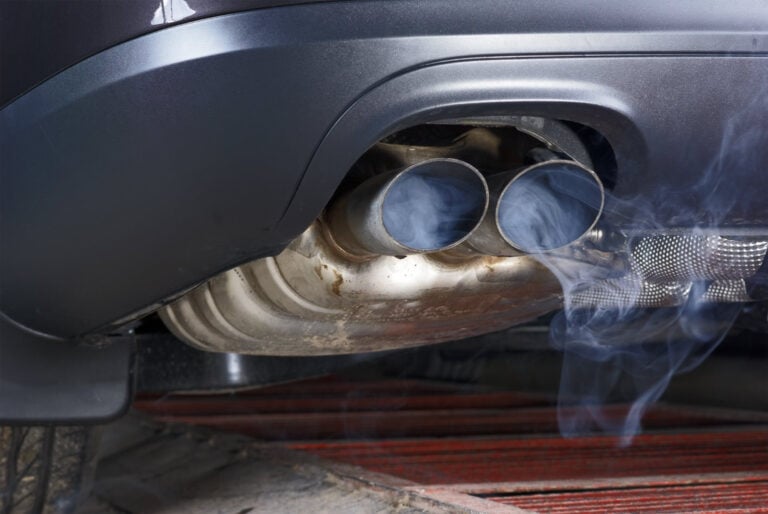 News
NewsUnpacking Australia’s New Vehicle Efficiency Standard: What does it mean for you?
What options do we have for Australia's upcoming fuel efficiency standards?
-
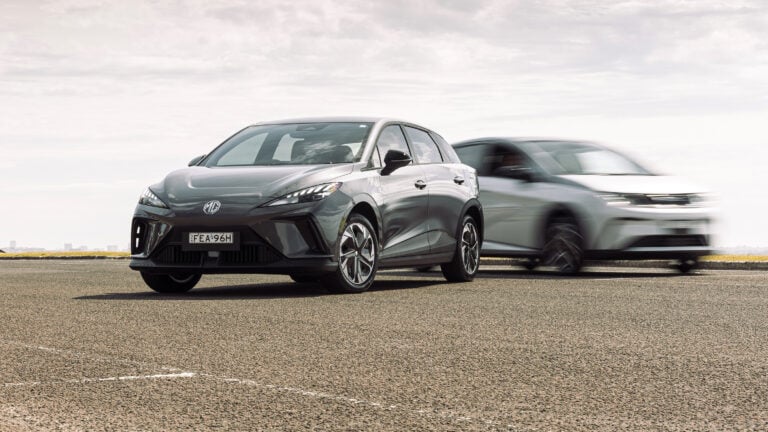 News
NewsWhat to expect from Australia’s New Vehicle Efficiency Standards in 2025
Australia likely to follow United States when it comes to fuel efficiency standards – expect legislation next year
-
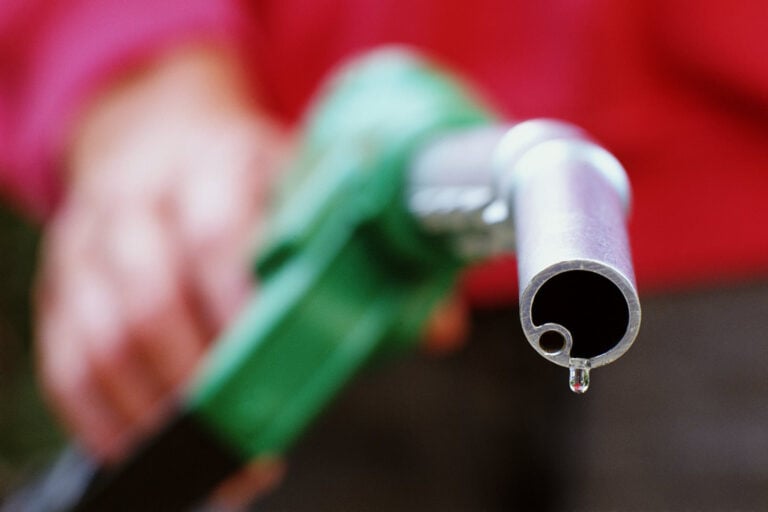 News
NewsClimate Council expects significant fuel savings under proposed NVES
NVES will cut new car-buyers fuel bills, according to Climate Council




